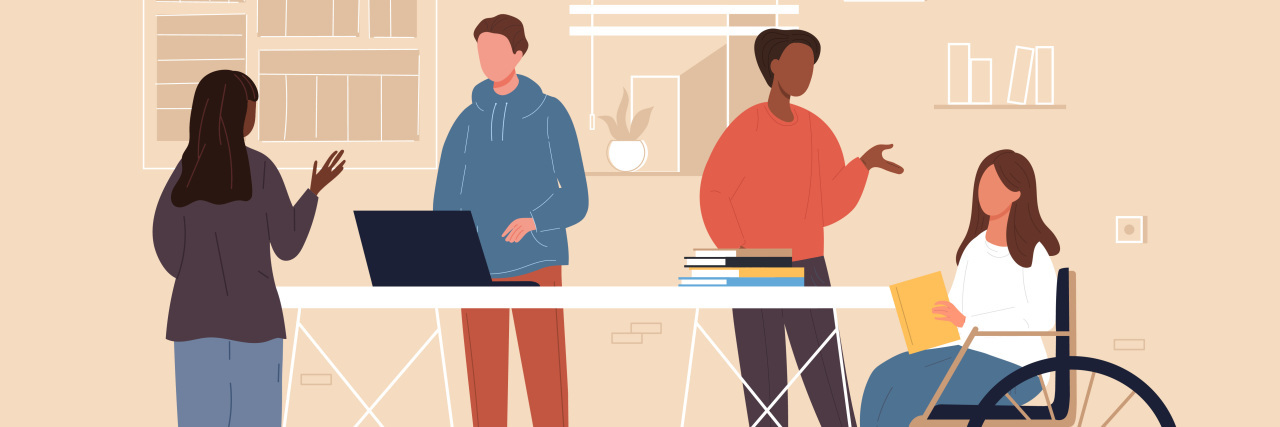Living with mental illness and disability can be incredibly isolating. We live in a world of people who are so unlike us they can’t fathom what life might feel like to live with a disability.
Although it is not the job of a specific person to educate those around them, in order to understand the life of another, we must listen without judgment when people do choose to tell their story. Our differences are what make us human.
In the summer of 2020, in the midst of the Black Lives Matter movement, I attended a few protests where Black people spoke of their experiences growing up in the same community I did. I realized I did not know their truth and I would never be able to fully experience what it’s like to be Black in America.
During an 8 minute 46 second kneel representing the amount of time Officer Derek Chauvin held his knee on George Floyd’s neck as he lay there unable to breathe, I came to the awareness that it is not a Black person’s job to educate the rest of the world of their lives, but rather it is the job of all people to listen to those around us when they do share experiences we could never imagine.
I realize this concept can only go so far. In order for someone to listen, someone else needs to speak. This is when I really recognized the need for advocacy, especially in the disability community.
Brené Brown, a researcher on shame and vulnerability said, “If we can share our story with someone who responds with empathy and understanding, shame can’t survive.” So much of the dread I have felt sharing my experiences with cerebral palsy and mental health over the years was birthed from an immense feeling of shame. I could not trust that those around me would listen and believe my story.
As a whole, we need to work towards being able to listen with an open mind to those who do choose to share their story — although they should not be required to educate others if they don’t want to.
I realize that it is not my job to share my story. It never has been, and it never will be, but in order to escape the shame and be met with empathy and understanding by others, I must choose to share my story.
It is not the job of disabled people or other marginalized groups to share their stories, however, it is up to the rest of us to listen if and when they do. It is up to the rest of us to observe and learn how each of us is different from the rest and that being different is OK. Being different isn’t shameful, but refusing to listen to those around you when given the opportunity is.
Speaking out is not necessarily our job, listening is. In order for someone to listen, however, someone must begin by sharing their story.
Getty image by Rudzhan Nagiev.

